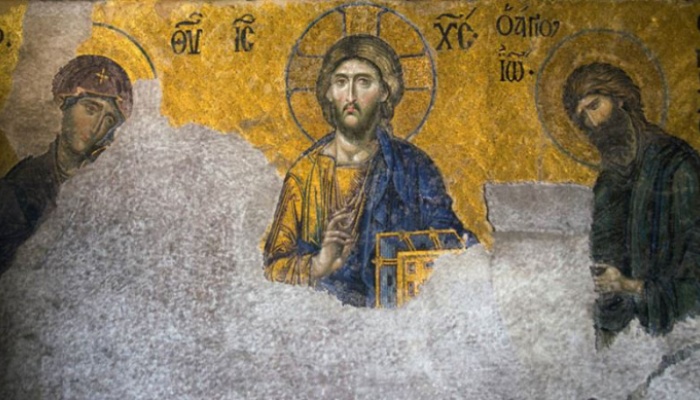The United Nations Educational, Scientific and Cultural Organization (UNESCO) has asked for permission from Turkey to examine possible alterations to Hagia Sophia and the Chora Church, two UNESCO World Heritage Sites recently converted to mosques by the Turkish government, the Duvar news website reported on Wednesday.
UNESCO Assistant Director-General Ernesto Ottone has instructed special envoy Mounir Bouchenaki, a renowned Algerian archaeologist, to carry out the inspection, a report by Deutsche Welle’s Turkish edition said.
Alterations the sites have undergone have caused concern within the UN body about their status as World Heritage Sites, DW said in its report.
The director-general of UNESCO instructed Bouchenaki to visit İstanbul and submit a detailed report by the end of February, despite the difficulties posed by pandemic measures in travel and inspections, according to the Orthodox Times.
The sixth century Hagia Sophia and 11th century Chora (Kariye) Byzantine structures are revered in Christianity, with a large number of Orthodox Christians regarding them as holy sites.
In July a Turkish court ruled that the conversion of the Hagia Sophia into a museum in 1934 had been unlawful. President Recep Tayyip Erdoğan declared the building a mosque and attended its first prayers. The ancient building was converted into a mosque after the Ottoman conquest of Constantinople in 1453 and later turned into a museum by Atatürk in 1935 after the proclamation of the Turkish Republic as a secular state.
The move drew international criticism and concern, including from Greece, the United States and Russia, as well as UNESCO, prompting a review of the structure’s World Heritage Site status.
Likewise, the Holy Savior in Chora was a medieval Byzantine church decorated with 14th-century frescoes of the Last Judgement that remain treasured in the Christian world and was converted into the Kariye Mosque half a century after the 1453 conquest of Constantinople by the Ottoman Turks.
It became the Kariye Museum in 1945 as Turkey pushed ahead with the creation of a more secular new republic out of the ashes of the Ottoman Empire.
Turkey’s top administrative court approved the museum’s conversion into a mosque in November 2019.
Observers say that both changes reflect Erdoğan’s efforts to galvanize his more conservative and nationalist supporters at a time when Turkey is suffering inflation and economic uncertainty.



